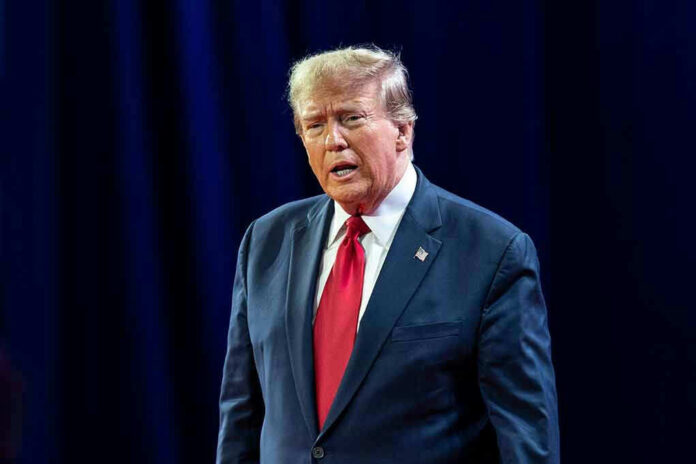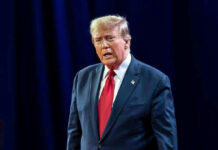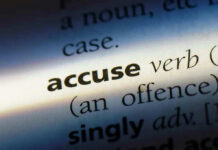
A viral AI-generated meme by President Trump depicting Chicago in flames has triggered an intense clash over federal power, immigration enforcement, and the future of American cities—raising the stakes for constitutional rights and local autonomy.
Story Snapshot
- President Trump posted a provocative meme referencing “Apocalypse Now,” intensifying federal-state tensions over Chicago and immigration enforcement.
- Illinois Governor JB Pritzker and Chicago Mayor Brandon Johnson condemned the meme as a threat, vowing legal resistance to federal intervention.
- The meme has reignited debate over presidential rhetoric, federal authority, and the normalization of extreme messaging in political discourse.
- Democratic leaders and media express concerns about authoritarianism, while Trump’s supporters view the meme as justified criticism of local governance.
Trump’s Meme Escalates Federal-State Conflict
On September 6, 2025, President Donald Trump posted an AI-generated meme on Truth Social, depicting himself as a war commander over a burning Chicago skyline with the caption, “I love the smell of deportations in the morning… Chicago about to find out why it’s called the Department of WAR.” The image, referencing “Apocalypse Now,” immediately drew condemnation from Illinois Governor JB Pritzker and Chicago Mayor Brandon Johnson, who denounced the meme as an unprecedented threat against an American city and warned of legal resistance to any federal action. This episode exemplifies the increasingly provocative use of social media and AI in high-level political communication and the growing friction between federal and local governance.
Trump’s meme followed his September 5 executive order rebranding the Department of Defense as the “Department of War,” signaling a more aggressive federal posture toward Democratic-led cities. The timing and imagery stoked fears of federal intervention in Chicago, a city often criticized by Trump as emblematic of urban mismanagement and crime. Pritzker’s response was swift and forceful, calling Trump a “wannabe dictator” and advising residents on how to interact with federal agents. Mayor Johnson framed the meme as an attack on democracy, rallying city leaders and Democratic figures to defend local autonomy. These reactions highlight the deep partisan divides and the ongoing battle over constitutional principles such as state sovereignty and limited government.
Pritzker and other libs melt down over Trump's 'Chipocalypse Now' meme, prompting a badly needed reality check https://t.co/lnBmS3CtfZ pic.twitter.com/tU4LuZ4SfI
— TheBlaze (@theblaze) September 8, 2025
Democratic Leaders Mobilize Legal and Political Resistance
In the days following Trump’s meme, Illinois officials began mobilizing both legal and political strategies to resist any federal encroachment. Pritzker issued guidance to Chicago residents, emphasizing legal protections and signaling potential court action should federal authorities attempt to intervene. Democratic leaders nationwide echoed these concerns, framing Trump’s rhetoric as authoritarian and a direct challenge to American democratic norms. Despite the heated backlash, no federal action has been taken against Chicago as of now, but preparations are underway to counter possible deportation efforts and defend local governance. The episode has become a flashpoint in the broader debate over federal versus state power, especially concerning immigration and law enforcement.
Trump, when pressed by reporters, denied any intent to threaten war with Chicago, characterizing his meme as “common sense” and a call for law and order. This rhetorical stance appeals to conservative values, projecting strength against perceived lawlessness and pushing back on what supporters see as failed leftist policies. At the same time, critics argue that such messaging erodes constitutional protections and risks normalizing extreme political discourse. The controversy has further polarized the national conversation, with both sides seizing on the meme as evidence of larger trends—whether toward restoring order or toward authoritarian excess.
Impact on Federal-State Relations and Political Discourse
The “Chipocalypse Now” incident has significant short- and long-term implications for the relationship between Washington and Democratic-led cities. In the short term, the meme has heightened political tensions, mobilized local resistance to federal intervention, and attracted extensive media scrutiny. For Chicago residents—especially immigrant communities—the episode has stoked fears of increased enforcement and uncertainty about their rights. State and city officials are grappling with how best to respond to possible federal action, balancing legal defenses with public messaging. Nationally, the controversy is likely to influence the tone of political discourse and the strategies employed as the 2026 elections approach.
Long-term effects include the erosion of traditional norms in presidential communication and the potential for legal battles over federal authority. The growing use of AI-generated content and “memetic warfare” by political leaders raises questions about intent, interpretation, and the boundaries of satire versus threat. Media and technology sectors face increased scrutiny as these tools become central to political strategy. Meanwhile, the legal sector may see new litigation over the limits of federal power and the rights of states and cities. As both sides dig in, the episode underscores the ongoing struggle to balance individual liberty, limited government, and national security in an era of rapid technological change and deepening partisan divides.
Expert Perspectives on “Memetic Warfare” and Constitutional Norms
Industry experts and media analysts describe Trump’s use of provocative memes as a form of “memetic warfare,” blurring the lines between humor and threat to provoke reactions from opponents. Academic commentary warns that such tactics risk normalizing extreme rhetoric and undermining democratic norms. Supporters of Trump frame the meme as justified criticism of failed local governance and a defense of conservative values, while critics argue it constitutes a dangerous escalation that threatens constitutional protections and the integrity of American cities. Mainstream sources broadly agree on the seriousness of the rhetorical escalation, even as their interpretations of Trump’s intent diverge.
Sources:
Pritzker hits Trump over deportation meme: ‘This is not a joke. Illinois won’t be intimidated’
Trump clashes with reporters after Chicago war meme: ‘That’s not war, that’s common sense’
‘Chipocalypse Now’: Is the Trump administration culturally illiterate?












